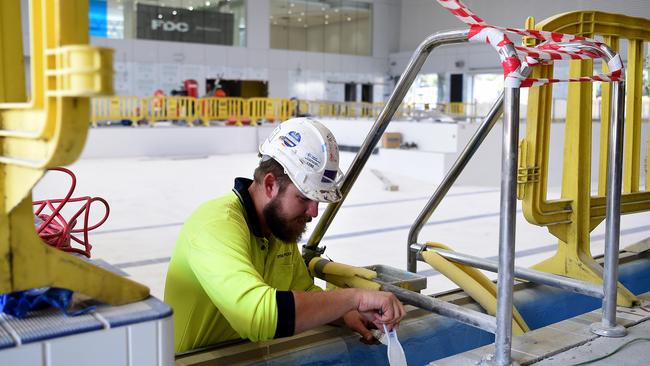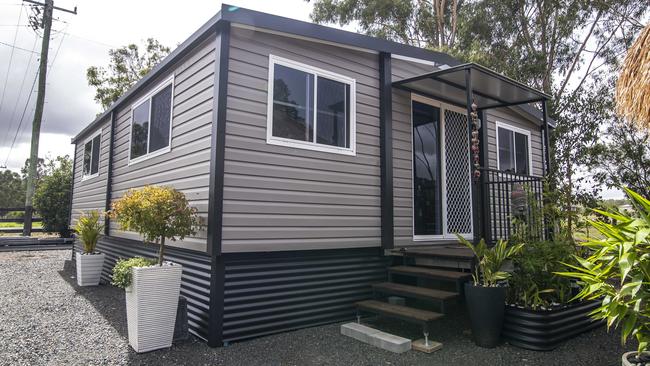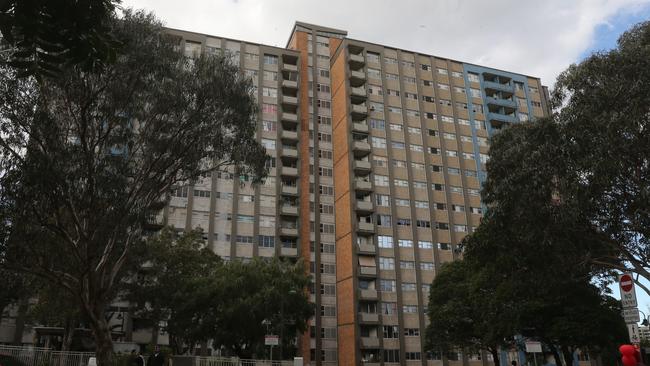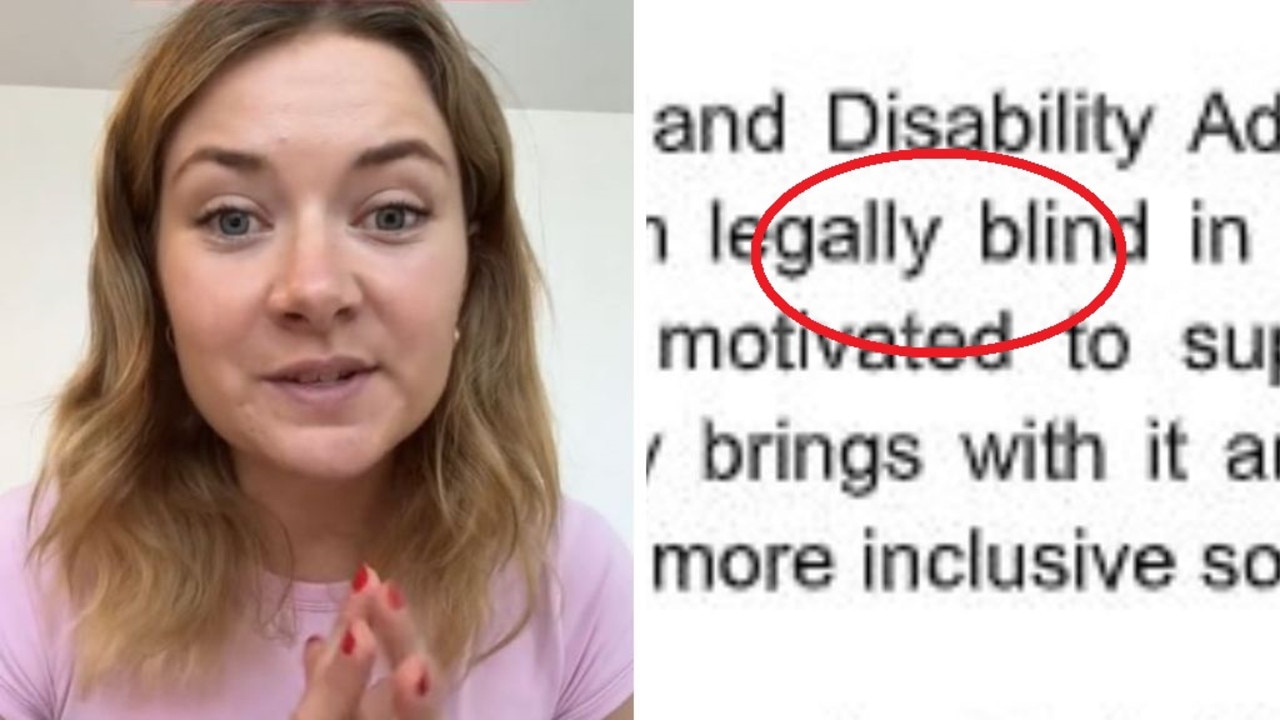Australian federal budget 2020: Winners and losers revealed
The Morrison Government’s billion-dollar cash splash in Tuesday’s Budget won’t be good for everyone. Here’s what you can expect.

Business
Don't miss out on the headlines from Business. Followed categories will be added to My News.
The Morrison Government is set to deliver one of the most important budgets since World War II on Tuesday night.
It’s expected to include a staggering amount of spending and the biggest deficit in Australia’s history as the government tries to kickstart the economy amid the coronavirus pandemic.
But even with such a large amount of spending, not every one will be a winner, here’s what we know about the Budget so far.
WINNERS
TAXPAYERS
Anyone paying tax is set to receive some money back in their pockets although the largest amounts will likely go to those earning more than $90,000.
This money is set to be delivered straight away, with tax cuts to be backdated.
News.com.au can reveal that the $1080 personal income tax cuts originally scheduled for 2022 will not only be backdated to this financial year but ‘turbocharged’ for the rest of the year to catch up on the missing weeks since July 1.
It means those earning $90,000 a year will get $1215 back, and the upper limit of the lowest 19 per cent tax rate will be increased to $45,000, meaning someone on $50,000 will get $1080 back.
The government is also looking at bringing forward stage 3 tax cuts, which gets rid of the 37 per cent tax rate so that anyone who earns between $45,000 and $200,000 only pays 30 per cent tax.
This would see someone on $90,000 a year get a further $1125 back from their taxes. These tax cuts were expected to begin in 2024 but are now expected to start earlier.
FIRST HOME BUYERS
Those open to buying a brand-new home will benefit from the expansion of the government’s First Home Loan Deposit Scheme.
The scheme will be extended to help an extra 10,000 people and the value of the properties eligible will also be increased.
Previously properties worth up to $700,000 in Sydney were covered under the scheme, but this will be increased to $950,000.
Melbourne’s cap will be increased to $850,000 and Brisbane to $650,0000.
It means that first home buyers with a 5 per cent deposit won’t have to pay lenders mortgage insurance.
TRADIES
There’s plenty of programs that will boost work for Australia’s tradies including first homebuyer incentives, granny flat changes and huge investments in manufacturing as well as road and rail projects.
The government will also pay half the wages of up to 100,000 new apprentices.
However, Labor has argued the government could do more to boost housing demand including more investment in social housing.
“There’s about 100,000 run down government homes right across the country, in every town in every suburb of this country, that need to be repaired,” Labor housing spokesman Jason Clare told reporters on Saturday.
“If the government put money into repairing those homes in the Budget, then that would create work for tradies right now. It could be done fast, and you could have tradies on the tools by Christmas.”
RELATED: What we know about the Budget so far
RELATED: Young Aussies to take huge hit to salaries due to COVID-19

ROAD AND RAIL USERS
Major projects to make it easier and faster to move around are being promised around Australia.
The Morrison Government has promised to fast-track $7.5 billion in funding for major infrastructure projects.
This includes improvements to the New England Highway in NSW, Newcastle Inner City Bypass, major works on the Shepparton and Warrnambool rail lines in Victoria, money for the first stage of the second M1 between Logan and the Gold Coast, money for Western Australia’s Reid Highway interchange with West Swan Road, upgrades to South Australia’s Hahndorf Township, highway upgrades to the Carpentaria Highway in the Northern Territory, money for Tasmania’s Midway Point and Sorell causeways, as well as the ACT’s Molonglo River bridge.
THOSE WHO WANT TO BUILD GRANNY FLATS
Building a granny flat for an elderly relative will be cheaper from July 1 next year as capital gains tax will no longer have to be paid.
The changes mean capital gains tax will not apply to the creation, variation or termination of a formal written granny flat arrangement providing accommodation for older Australians or people with disabilities.
The measure will begin as early as July 1, 2021 subject to the passing of legislation.

MANUFACTURING, BUT ONLY IN SIX KEY AREAS
The government has selected six areas where it will pour an extra $1.5 billion over four years.
Only the following six sectors have been selected as priority areas:
• Resources technology and critical minerals processing;
• Food and beverage manufacturing;
• Medical products;
• Clean energy and recycling;
• Defence industry; and
• Space industry.
These areas will benefit from co-investment in large projects, grants for transformational investment in technologies and processes, as well as supply chain resilience.
THOSE WANTING TO DO AN APPRENTICESHIP
Hiring an apprentice has never been so cheap with the government announcing it will pay half the wages of 100,000 new employees.
Starting from October 5, any business that takes on a new or recommencing apprentice or trainee will be eligible for a 50 per cent wage subsidy. This is regardless of geographic location, occupation, industry or business size.
SMALL BUSINESS
Businesses with an aggregated annual turnover between $10 million and $50 million will get access to tax breaks including on fringe benefits tax and simplified regulations.
From July 1, businesses will be able to immediately deduct certain start-up expenses and certain prepaid expenditure;
Then in April, they will no longer have to pay fringe benefits tax on car parking and multiple work-related portable electronic devices, such as phones or laptops, provided to employees
From July 1, they will get simplified trading stock rules, remit PAYG instalments based on GDP adjusted notional tax, and will be able to settle excise duty and excise-equivalent customs duty monthly on eligible goods.
Businesses will also no longer have to pay fringe benefits tax if they pay to retrain or reskill employees who are moved to a different role in the business.
LOSERS
ANYONE NOT PAYING TAX
If you are one of those Australians who earn less than $20,000 and don’t have to pay tax then there doesn’t look like there will be much in the Budget for you.
Those who are unemployed have already lost $300 a fortnight from their JobSeeker payments, and face getting payments slashed again just before Christmas. They may return to the original Newstart rate of just $40 a day.
BIG BUSINESS
There’s no sign of any company tax cuts on the horizon, although the government is ploughing billions into funding infrastructure and manufacturing.
However, if you are not in these areas, the help seems a bit thin on the ground.
THOSE RELYING ON SOCIAL HOUSING
So far there’s been no indication the Morrison Government is planning a significant boost to social housing despite calls from Labor and support from the CFMEU, Master Builders Association, Housing Industry Association and the Property Council.
The Community Housing Industry Association (CHIA), National Shelter, and Homelessness Australia have also urged the government to put more money into social housing.
Labor housing spokesman Jason Clare has said the move made sense.
“Private demand for new housing is going to be down for years because the borders have been shut and there is no migration,” Mr Clare wrote in The New Daily.
“To fill that gap and keep the industry going it makes sense to build more social housing and fix the run-down housing we already own.
“It can be done quickly. It would keep a lot of tradies working. It would also put a roof over the head of people who desperately need it.”
RELATED: Public housing squalor ‘like out of the Stone Age’

SUPERANNUATION
Those hoping for changes to the superannuation guarantee look set to be disappointed.
It doesn’t seem like Treasurer Josh Frydenberg is planning to stop the scheduled increases from going ahead.
The current plan sees people’s super gradually increase from 9.5 per cent to 12 per cent starting on July 1, 2021. There would be 0.5 percentage point increases over four years to July 2025.
The Grattan Institute has said the rise could hold back wages growth and called for the increase to be abandoned. Other organisations including ACOSS, the Small Business Association and the RBA have also expressed concerns.
Two-thirds of the top economists surveyed also believed the increase should be delayed or abandoned, according to The Conversation.
But changing it would mean breaking an election promise, something the Morrison Government may just not be prepared to do.
Originally published as Australian federal budget 2020: Winners and losers revealed



